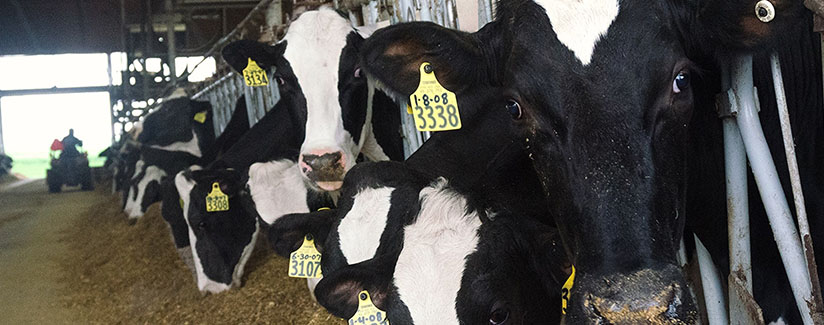
Hormone Confusion: Cow milk vs. Human breast milk
06/13/2012
Our post about hormones and early puberty is one of the most visited pages on our site. It seems many readers want more information on the topic. Our experts have answered Are hormones in my milk and meat making my kids bigger? and What could be causing early puberty in girls?
We recently received another reader question asking, “So if hormones do not survive digestion, why wouldn’t my doctor prescribe me estrogen while breastfeeding? If taking hormones affects my baby’s body through my milk supply, then common sense says hormones in milk and food will affect us also. Hormones should not be added to our food supply period.”
Dr. Ann Macrina, Penn State, helped us answer this question, explaining the difference between protein hormones and steroid hormones.
Dr. Ann Macrina:
Thank you for your question. You bring up interesting points, and some clarification might help. There are two basic classes of hormones: protein hormones and steroid hormones. Protein hormones, like all proteins, are digested in the stomach after ingestion. They are broken down into amino acids and peptides, which are then absorbed from the small intestine into the body. The active hormone is not absorbed. Steroid hormones, like estrogen, are not digested in the stomach or small intestine, and they can be absorbed intact.
One reason health care providers do not prescribe estrogen to breastfeeding women is that large doses can decrease milk production in the first two to three months of lactation. Reduced milk volume has been reported in some but not all studies. The potential effect on the infant is a slower growth rate due to reduced milk intake. It is not related to effects of estrogen on the baby. When mothers take estrogen supplements, there is a very small amount of estrogen that ends up in human breast milk. The American Academy of Pediatrics has verified this is safe.
There are naturally occurring hormones in all foods, including breast milk. Plants like soybeans and cabbage contain hormones. Meat and milk have small quantities of hormones, but at levels far lower than what humans produce in their own bodies on a daily basis. Administration of hormones to animals to improve milk production or growth rates has only a very small impact on the levels of hormones in meat and milk. It’s amazing that women will take birth control pills containing 20,000 to 30,000 ng of estradiol per dose but consider the 3 ng in a glass of whole milk or the 1.2 ng in a serving of beef from a steer that was given a growth promotant to be unsafe. A prepubertal girl produces 54,000 ng of estrogen per day, and an adult woman produces 630,000 ng per day. Boys and men produce amounts in between, and pregnant women produce 19,600,000 ng per day. Common sense tells us that the amounts of estrogens (and other hormones) in meat and milk are minuscule when you consider how much is produced by the human body every day.
“20110419-RD-LSC-0621” by USDA is licensed under CC BY.


























